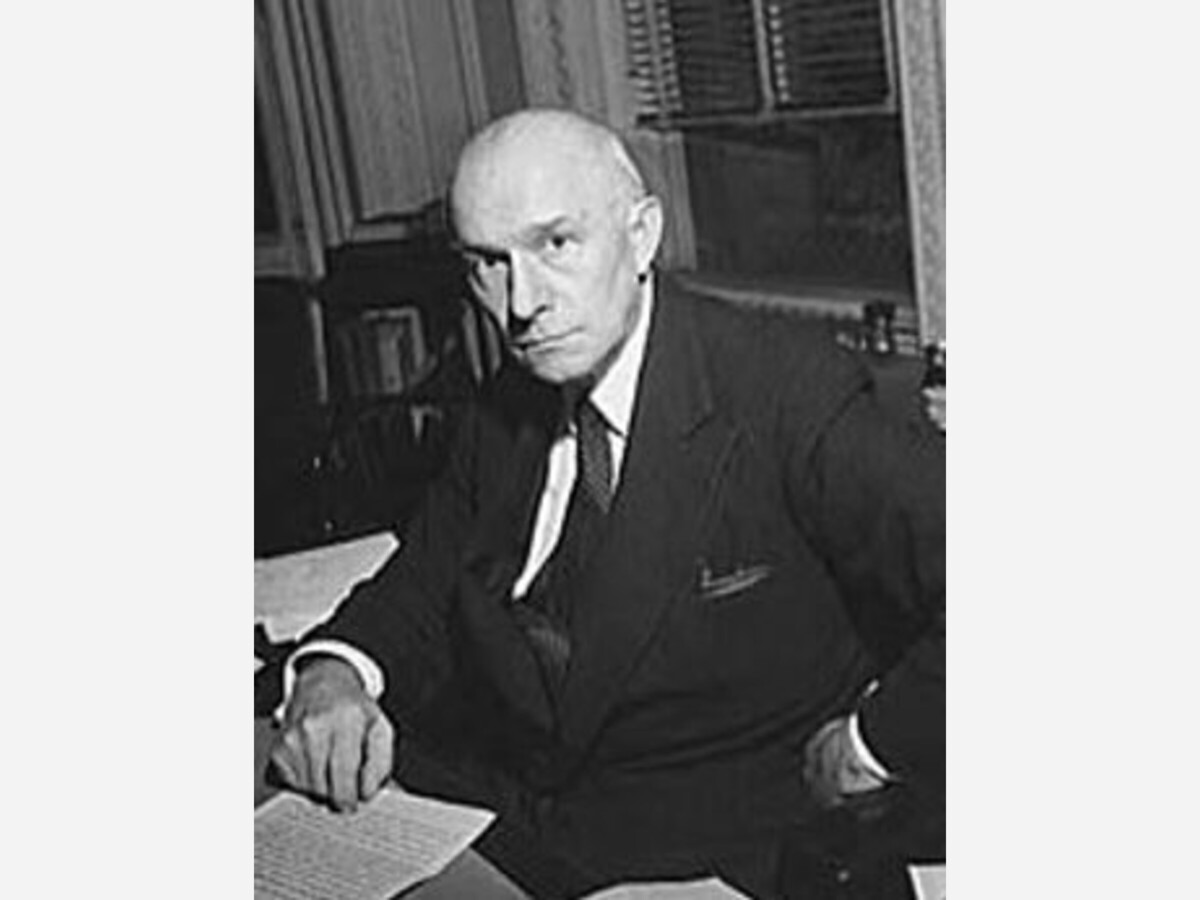Image


The June 30, 1883 Franklin Sentinel shared a bit of town gossip, namely that a gathering had been held at the home of Methodist Pastor M.D. Hornbeck, where parishioners and friends had presented the Reverend and Mrs. Hornbeck with a handsome baby carriage for the “assistant pastor.” The assistant, of course, was none other than the recent arrival, Stanley K. Hornbeck. And while he never grew up to an assistant pastor in Franklin or anywhere else, he did have a life a great achievement and at least some controversy.
Young Stanley and his parents were not in Franklin long before they fell for the allure of the West, or what might be considered the Midwest today. The last report of Rev. Hornbeck was from just about a year later when he was reported to have been in town , “and left for Waverly, Ill, the next morning. He was looking well and was in the best of spirits. He greatly prefers the west and the best of good feelings from his people here follow him there.”
When Stanley grew up, he stayed in the west initially, going on to attend University of Colorado, University of Denver, Oxford (on a Rhodes Scholarship), and University of Wisconsin, eventually earning a PhD. He promptly became an expert in trade treaties and diplomacy, writing and lecturing on those topics.
Continuing to show promise and earn praise, Hornbeck taught at colleges in a modernizing China from 1909 to 1913 and was present when the 1911 revolution toppled the Manchu dynasty. In 1916, he published “Contemporary Politics in the Far East,” the first of eight books he ultimately authored.
Sympathetic to the aims of China’s reformers, he was supportive of the American “open door” policy, which somewhat blunted the dominating instincts of European nations and Japan toward China.
Ultimately, all this expertise landed him a position as chief of the State Department Division of Far Eastern Affairs (1928–1937) and then special adviser to Secretary of State Cordell Hull (1937–1944). It was in this last role that his sympathy for China, under threat and assault from Japan through the 1930s, let him to advocate and help formulate American policy that was to have fatal consequences for millions.
With France defeated in Europe, Japan marched into “Indochina” making it, de facto, their own. That action made Hornbeck and others wonder whether the Japanese would take advantages of the troubles of the Dutch and British, with their large and vulnerable empires as possible future targets. It was Hornbeck, in this situation, who argued forcefully for strict economic sanctions against Japan, particularly on petroleum, which was crucial to Japan’s ability to wage war and function economically.
As late as November 1941, as the militarists in Japan recognized that their entire empire and nation were at risk if the Americans didn’t relent, Hornbeck brushed aside concerns that Japan might decide on war and went so far as to, in effect, “bet” that the Japanese would give in, stating in a memo that the odds were five to one against the Japanese taking military action. Indeed, November 26, 1941, the US made it clear that Japan would have to withdraw from Southeast Asia and China – areas that had taken several years to conquer, before the United States would resume the oil shipments.
Of course, Japan’s answer, a surprise attack on the US fleet in Hawaii and a sea-borne blitzkrieg that ranged nearly to India and Australia, surprised everyone, probably including Hornbeck. But his expertise kept him at State and then subsequently, landed him the job of ambassador to the newly liberated Netherlands. Doubtless his Asia knowledge was crucial here as the Netherlands initially sought to reclaim its sovereignty over what is today Indonesia – despite the robust independence movement there.
Hornbeck came back to the US and spent most of the remainder of his life in academic circles.
In 1966, the Sentinel noted his passing and his Franklin beginnings, and that he had for a time taught at Harvard and at the Institute of Politics in Williamstown, Mass.
Charles Sweeney will be the subject of Hometown History #109, tomorrow.